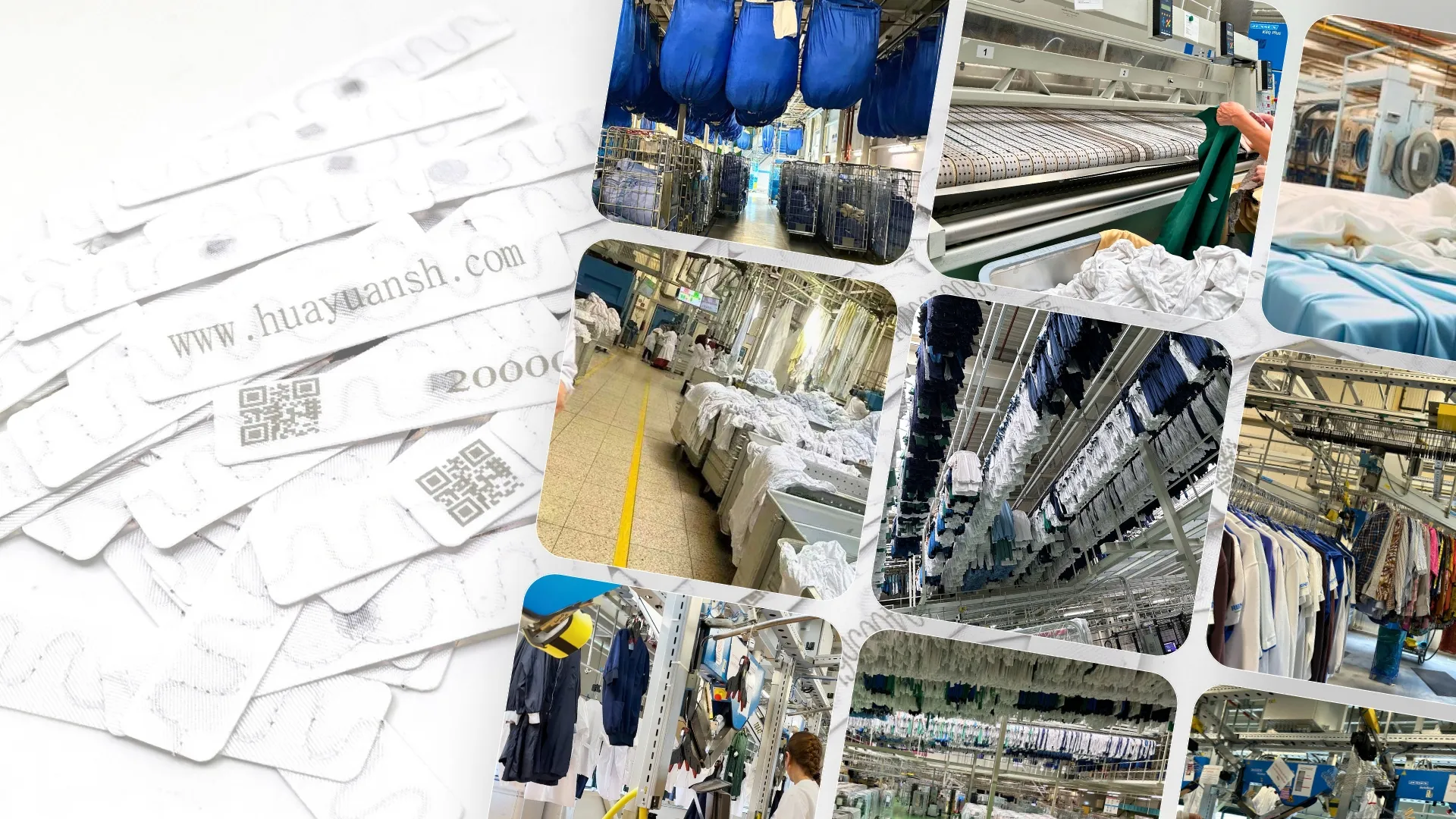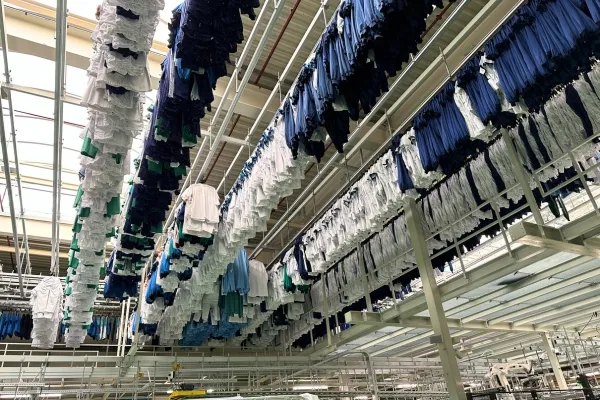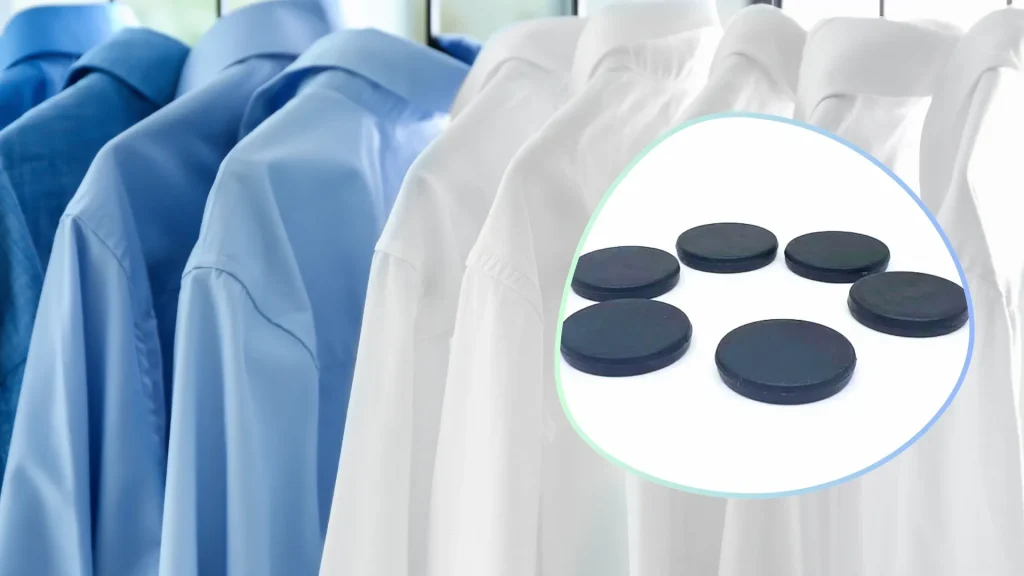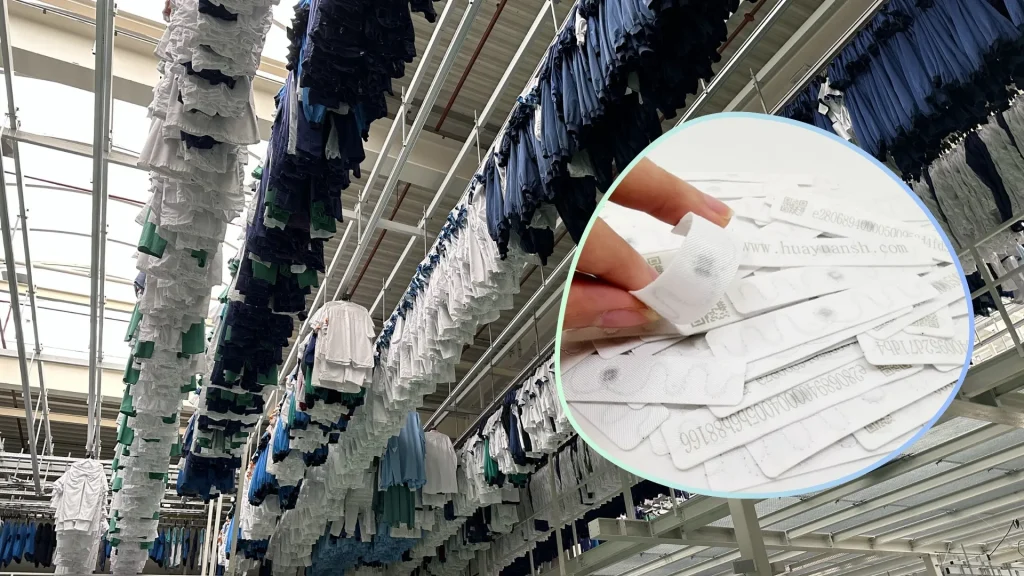RFID for Industrial Laundry
In industries where textiles are handled in large volumes, such as hospitals, hotels, and manufacturing facilities, managing linen and uniform inventories can be a significant challenge. Traditional methods, like manual counting and sorting, are time-consuming and prone to error. Our RFID (Radio Frequency Identification) linen tags provide a robust solution to these challenges, ensuring efficient tracking, inventory management, and process automation.
What are RFID Linen Chips?
RFID linen chips are small, rugged tags embedded with a radio frequency identification (RFID) microchip and antenna, designed specifically for tracking linens and textiles in industrial settings. These chips are heat sealed or sewn into items like sheets, towels, uniforms, and other fabrics to enable automatic identification and tracking throughout their entire lifecycle. Unlike traditional barcode systems, RFID chips do not require direct line-of-sight to be read; they can be scanned remotely from a distance, even when items are stacked or inside bags. This makes RFID linen chips a powerful tool for efficiently managing large volumes of textiles in a range of industries.
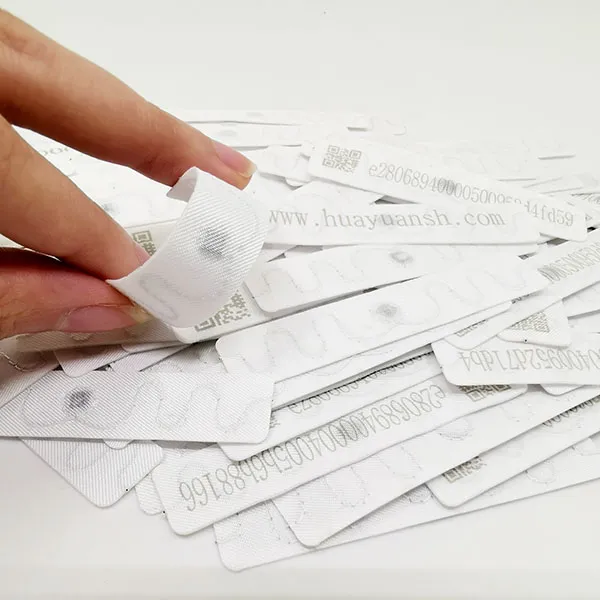
Why use RFID in the Textile Laundry
With the scale of the industrial laundry and rental garment segments grow, so does the demand for automation, increased knowledge, inventory control and precision asset management.
So far, less than 1% laundry industry has deployed RFID in the worldwide. Companies who have implemented RFID laundry system benefit a lot. Furthermore, some washing industry actively regard RFID as the basic configuration of upgrade technology. Predictable, in the near 3-5 years, RFID deployment will enhance laundry industry profound technological improvements. Furthermore, prices to RFID devices and RFID textile tags keep decreasing but with better quality and more steady e-performance which is a necessary advantage which initiates an innovation.
Regardless of whether your business is involved in large-scale laundry washing, accurate washing records, or reducing theft, RFID laundry tracking tag may be beneficial to you. Here are the reasons why RFID can help you track clothing, uniforms, PPE, linen sheet etc:
- Reduce manual clothing classification
The washing sorting process is used in hospitals, hotels, laundry facilities, or any company that has multiple types of textiles. Usually, 2-6 people use different washing tubs to facilitate the washing process, and employees may spend hours sorting clothes.
In RFID laundry washing management, textile UHF laundry tags are attached to each piece of clothing. When the RFID UHF laundry tags pass through the assembly line, after reading each tag, the software will determine the type of textile to be read and direct it to the appropriate area or machine. The data reading results of the software can be displayed on the screen, so that people can immediately direct the textile or linen to the next destination.
Using RFID fabric laundry tag can help eliminate the manual sorting process and can greatly reduce the number of people on the sorting line. No need to hire personnel to read barcodes or identify linens, only 1-2 people can move items to the next process, reducing manual intervention and improving work efficiency
- Provide accurate washing count records
The washing cycle of each piece of clothing is an important indicator, because the analysis of the washing cycle helps predict the end of life of the clothing. Most linens or uniforms can only withstand a certain number of high-power washing cycles before they begin to wear and wear. Without a record of washing cycle counts, it is difficult to estimate the service life of the garment. When the software detects that the service life of clothing or linen is about to end, the software can prompt the user to re-order that type of clothing or linen. This process ensures that the company always has the inventory of every garment or linen it needs, thereby reducing the lag time for loss or damage.
- Provide visibility to inventory quickly and easily
Checking inventory in a timely manner can accurately plan events, conduct effective operations or prevent items from being lost and stolen. If textiles are stolen and the company does not conduct daily inventory counting, due to inaccurate inventory, it may face delays in daily operations.
UHF textile RFID tag sewn into each type of textile can help companies count inventory faster and more efficiently. The RFID readers placed in each storage room will continuously count
- Reduce loss and theft
The unique EPC number on each UHF textile tag allows the company to identify the exact textile that was lost or stolen and where the data was last collected. If you get linen or clothing from a specific room in a hotel or hospital, you can charge guests for linen to ensure that the company does not lose money.
Besides high quality RFID UHF Laundry tags, HUAYUAN is capable of offering the whole system including RFID Tunnel, RFID Reader, RFID carbin, RFID read panel, and RFID handheld reader to deal with various applications. Also energy-efficient equipment could be offered as well which helps enhance working efficiency and increase revenues.
How RFID Linen Chips Work in the Industrial Laundry Process
RFID linen chips streamline the industrial laundry process by providing a seamless and automated way to track and manage textiles. Here’s how they function at each stage:
Tagging and Registration: Each linen item, such as a sheet, towel, or uniform, embedded RFID chip. This chip contains a unique identifier linked to a central database that stores relevant information about the item, such as its type, size, owner, and usage history.
Automated Tracking: RFID readers are strategically placed at key points throughout the laundry process, such as at collection bins, washing machines, dryers, and distribution areas. As items pass through these points, the readers automatically scan the RFID chips, capturing real-time data without requiring manual intervention. This allows for efficient tracking of each item’s location, status, and movement.
Sorting and Processing: The RFID system helps automate the sorting of laundry by type, client, or priority. For example, RFID readers can quickly identify which items belong to a specific batch or need special handling, reducing sorting time and labor costs.
Inventory Management: As items are processed, their data is continuously updated in the central system. This provides accurate, real-time information about inventory levels, usage patterns, and the lifespan of each item. It helps prevent overstocking or understocking and ensures the availability of clean linens when needed.
Loss Prevention and Accountability: RFID chips allow for constant monitoring of linens throughout their lifecycle, significantly reducing the risk of loss or theft. Alerts can be set up if items are detected leaving designated areas or not returning after a certain period, increasing accountability and reducing inventory shrinkage.
Data Analytics and Reporting: The data collected by the RFID system can be analyzed to provide insights into operational efficiency, washing cycles, item turnover rates, and more. These analytics help businesses make informed decisions, optimize processes, reduce costs, and improve service quality.
By automating and enhancing visibility throughout the laundry process, RFID linen chips help industrial laundries achieve higher efficiency, lower costs, and better overall management of their textile inventories.
Applications of RFID Linen Chips in Different Industries
RFID linen chips are versatile and can be applied across various industries, such as:
- Healthcare: Hospitals use RFID tags to manage their linen, gowns, and scrubs, ensuring a consistent supply of clean items while minimizing losses and contamination risks.
- Hospitality: Hotels and resorts utilize RFID technology to track bed linens, towels, and staff uniforms, enhancing operational efficiency, reducing theft, and maintaining high-quality service.
- Manufacturing and Industrial Services: Factories and plants use RFID tags for employee uniforms and specialized garments, ensuring compliance with safety standards and reducing operational costs related to garment management.
- Commercial Laundry Services: Large-scale laundry operations that handle linen and uniforms for multiple clients use RFID chips to track items, streamline processes, and provide better service transparency to their customers.
Feel free to browse our RFID Textile Solutions website business area page for more information
Why Choose Our RFID Linen Tags?
With over 20 years of experience in RFID research and development, and 8 years specializing in the design, production, and application of RFID tags for textiles, HUAYUAN is a leading RFID laundry tag manufacturer. We understand the challenges faced by laundry companies and the critical issues that arise throughout the laundry process. Our RFID washable tags have become increasingly reliable through continuous analysis and innovation. At the same time, we are committed to ongoing R&D efforts to produce smaller, thinner, more stable, and cost-effective RFID laundry tags. Our RFID linen tags match the quality of any leading tags available worldwide.
Our ability to produce up to 50 million RFID laundry chips annually ensures fast delivery and minimizes operational downtime. We maintain the highest standards of quality through stringent quality control processes, ensuring our RFID laundry tags are durable and reliable, providing seamless operations for our clients. We have successfully served hundreds of satisfied clients and deployed over 100,000 RFID laundry tags across various industries.
HLB RFID Laundry Button
HLT UHF RFID Laundry Tag
HST Silicone UHF Laundry Tag
Get in Touch
To learn more about our RFID linen chips and how they can benefit your business, please reach out to us.

